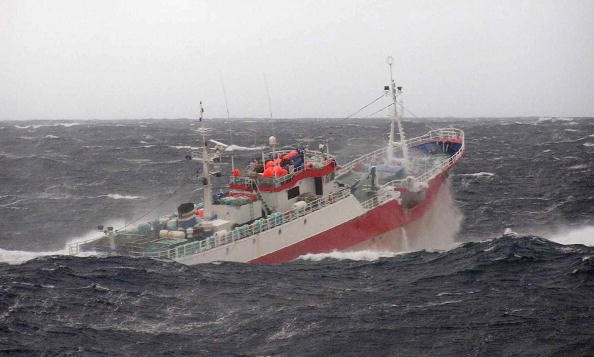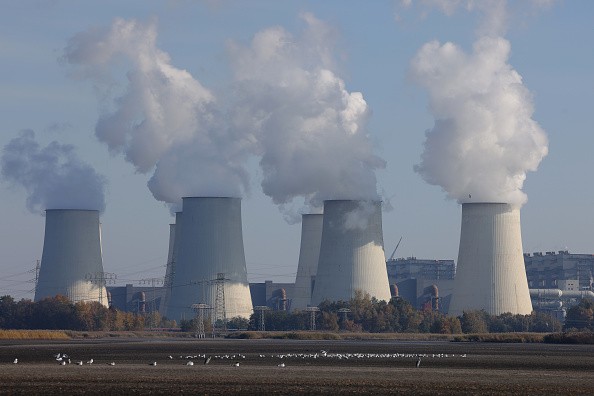An international study with experts from the University of Gothenburg found that storms over Antarctica's waters cause the outgassing of CO2 into the air.
Using cutting-edge ocean robots, the team was able to gain a deeper knowledge of climate change and develop more accurate global climate models as a result of their work.

Carbon Dioxide-rich Water Rises to Surface During Storms
The Southern Ocean, which surrounds Antarctica, has a significant impact on the global climate due to its high carbon dioxide content, as per Phys.org.
Carbon dioxide fluxes between the atmosphere and the water were explored in a new worldwide study in which academics from the University of Gothenburg took part.
Researchers have just released fresh studies that show how the region's involvement in climate change has been overlooked.
Storms in the area boost ocean mixing and transport carbon dioxide-rich deep water up to the top, as the researchers demonstrate. As a result of this, oceans emit carbon dioxide into the atmosphere.
According to co-author and University of Gothenburg professor of oceanography Sebastiaan Swart, the work is a crucial key to understanding the Southern Ocean's significance for climate and the global carbon budget.
Understanding the Impact of Storms on the Outgassing of Co2
The Southern Ocean is home to half of the world's ocean-bound carbon dioxide. Storms could become more frequent and severe as a result of climate change, according to Science Daily.
As a result, researchers stress the need of studying storms' impact on carbon dioxide emissions into the atmosphere.
"This knowledge is necessary to be able to make more accurate predictions about future climate change. Currently, these environmental processes are not captured by global climate models," according to University of Gothenburg's Marcel du Plessis, who was also involved in the study.
Contribution of Ocean Robots
Researchers overcame a significant obstacle by using a novel robot system to collect data in the stormy waters surrounding Antarctica for an extended period of time. Robots that can operate autonomously in the ocean have been gathering data for several months, including ocean gliders and unmanned aerial vehicles (UAVs).
A research vessel would not have been able to collect data with as lengthy endurance as scientists were able to do with this groundbreaking technology.
This new technology enables researchers to better comprehend the ocean's role in regulating global temperature, says Sebastiaan Swart.

The Need for Further Study
The Southern Ocean's subpolar subregion is critical to the global carbon cycle. Despite the fact that studies have linked widespread CO2 outgassing in this region to the large-scale upwelling of old, CO2-rich deep waters, the mechanisms that explain its movement to the surface mixed layer, where it can then be outgassed into the atmosphere, remain little known
An important finding of the research is that storms with high wind and rain frequency are critical to regulating CO2 transit between the boundary layers and surface ocean interfaces.
Storm CO2 fluxes and their seasonal to longer-term sensitivity to climate change in this crucial region are poorly understood at the 1-10 day time periods used in this work.
Researchers used gliders outfitted with CSIR-designed and constructed pCO2 equipment to simultaneously sample the atmosphere-ocean interface and the mixed layer in the Southern Ocean Seasonal Cycle Experiment (SOCCO).
Related Article : Mechanical Trees May Help Absorb Toxic Carbon Dioxide in the Atmosphere
For more news, updates about CO2 and similar topics don't forget to follow Nature World News!
© 2025 NatureWorldNews.com All rights reserved. Do not reproduce without permission.





